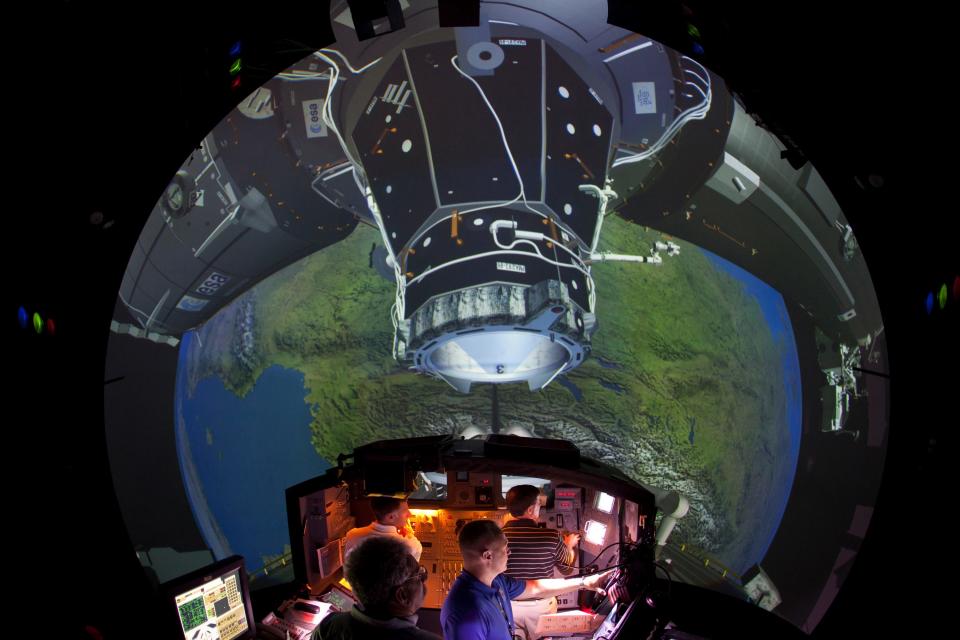Opinion: Why a diverse workforce is key to the space economy
Texas—already inextricably woven into America’s spacefaring DNA—can enable another giant leap toward a robust, representative space economy and society.
In many ways Texas is already synonymous with space. Rice University was the launchpad for President John F. Kennedy’s 1962 moonshot. To this day, Houston hosts NASA’s Johnson Space Center and a number of leading aerospace companies which also operate in other cities statewide. Texas companies are helping develop next-generation spacesuits, space stations and space-based construction systems to support future space exploration and economic activity.
A recent PwC aerospace industry report ranked Texas the most attractive U.S. state for the aerospace industry overall and in economic metrics. Per the report, 138,000 Texans work in aerospace and defense, and the state hosts 18 of the world’s top 20 aerospace manufacturers. The Austin Chamber of Commerce tracks 15 aerospace companies with more than 12,000 employees in the capital region alone.
Austin also boasts one of the premier American gatherings dedicated to diversity, representation, and the creative exchange of ideas in SXSW. This year’s programming was flush with space themes. At a time when Texas is poised to make an unprecedented public investment in commercial space, SXSW’s spotlight on diversity and inclusion helps underscore how important representation is to maximizing the potential of the future space economy.

As it grows, the industry must do more to fully capitalize on the benefits of a diverse workforce. Not enough women or people from underrepresented groups are graduating from the nation’s college engineering programs. These groups are more susceptible to falling out of the talent pipeline in grades K-12, where more than 5 million students annually lack quality access to science, technology, engineering and mathematics (STEM) opportunities.
This means the industry cannot access the talent and skills that large segments of our population have to offer. If we are to reach the full potential of the future space economy and become a truly spacefaring society, we must make space inclusive of and accessible to all.
I was privileged to speak about this topic during SXSW as part of a commitment to address a systemic shortcoming in workforce diversity. At last April’s national Space Symposium, I stood with two dozen other CEOs and senior executives to sign the Space Workforce 2030 pledge to boost the representation of women and professionals from underrepresented populations in both technical and senior leadership positions.
Success requires an industry-wide effort to invest in K-12 STEM programs and bring the percentage of these populations graduating with aerospace engineering degrees in line with overall engineering graduation rates. Pledging individuals represented the entire U.S. space enterprise—nonprofits, government, and private companies, from startups to major contractors. Several Texas companies, including multiple with strong Austin ties, were inaugural signers of this pledge.
This is an excellent start, but this challenge will not be solved overnight. We hope more companies will recognize the importance of this cause and join this pledge, which was crafted to ensure accountability and transparency over time. Space Workforce 2030 companies have promised to share aggregated technical workforce data annually at Space Symposium through 2030, and we are preparing to publish the first year’s data in April.
Everyone who dreams about space deserves an opportunity to shape its future. One year after his moonshot speech, President Kennedy underscored the importance of inclusion when he said, “We can help make the world safe for diversity. For, in the final analysis, our most basic common link is that we all inhabit this small planet.”
As Texas emphasizes its role in advancing U.S. space leadership, its companies can likewise lead by example as the space industry commits to cultivating a more diverse and representative future workforce.
Isakowitz is president and CEO of The Aerospace Corporation. For more information visit Space Workforce 2030.
This article originally appeared on Austin American-Statesman: Opinion: Why a diverse workforce is key to the space economy

